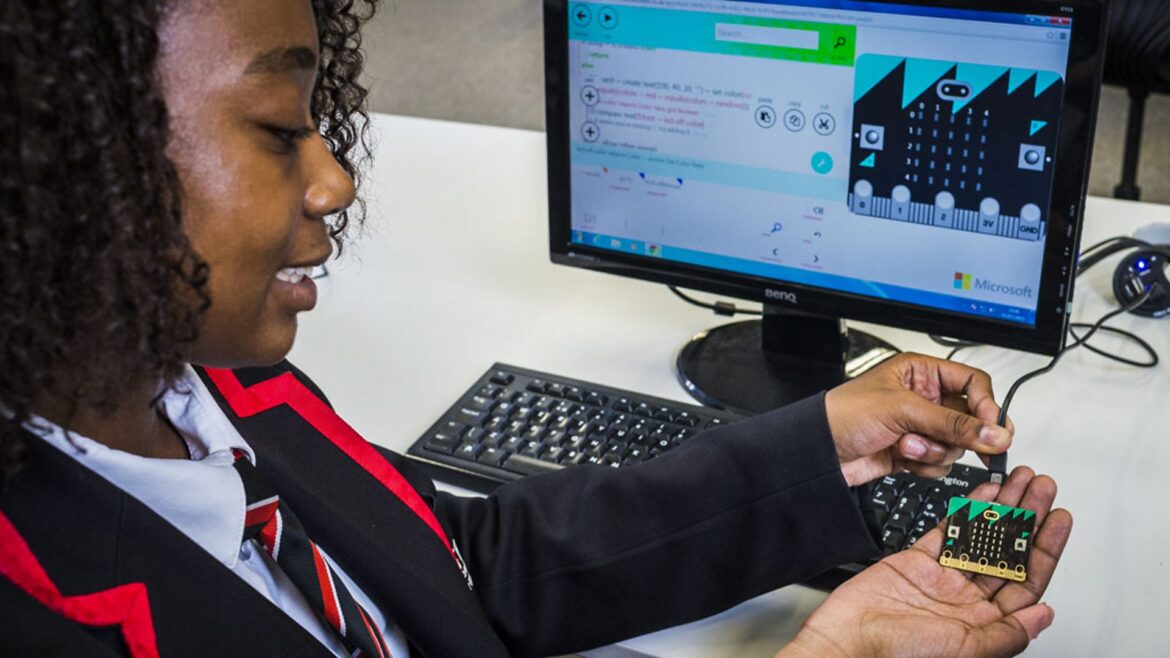In the world of educational technology, the BBC micro:bit emerges as a standout contender, challenging the status quo of traditional learning tools. This compact, versatile device has carved a unique niche within the realm of computer education, inviting students to dive into the world of coding and digital creativity. However, the educational tech arena is diverse, with various tools vying for the top spot in classrooms across the globe.
Each tool brings its own strengths, tailored to different aspects of learning, from coding to robotics, and from interactive learning to virtual reality experiences. This comparative analysis delves into the heart of what makes the BBC device a revolutionary tool in comparison to other educational technologies. By examining the features, accessibility, user engagement, and educational outcomes associated with the micro:bit and its competitors, we aim to uncover which tool truly reigns supreme in fostering a future-ready generation.
This exploration is not just about pitting devices against each other; it’s about understanding how each tool can uniquely contribute to the tapestry of modern education, enriching the learning experience in its own way.
Why is the BBC tool pioneering accessibility in technology education?

The BBC micro:bit sets itself apart in the realm of educational technology through its unparalleled focus on accessibility and ease of use. Unlike many of its contemporaries, which cater to a spectrum of educational needs, the micro:bit is specifically designed to demystify the world of coding and digital creation for young learners.
Its inception was rooted in the goal of making technology education inclusive, providing every child with the opportunity to develop digital skills irrespective of their background or previous experience with technology.
This commitment to accessibility is evident not only in the device’s user-friendly design but also in its affordability and the extensive range of free educational resources available to both students and educators. As you can see on Elecfreaks, by lowering the barriers to entry, the micro:bit encourages a broader demographic of students to engage with computer science, making it a prime tool for introducing the basics of coding in a fun, interactive manner.
While other educational tools also offer innovative features, the micro:bit’s targeted approach to simplifying technology education and its widespread adoption across UK schools position it as a frontrunner in the quest to equip the next generation with essential digital skills.
Through its emphasis on accessibility, the micro:bit not only competes with but also complements other technologies, each playing a crucial role in the diverse ecosystem of learning tools.
How do these tools compare when it comes to engagement and interactivity?

Diving deeper into the comparative landscape, the BBC micro:bit distinguishes itself with its core emphasis on interactivity and student engagement. Where some educational tools may excel in delivering content passively, the micro:bit thrives on its ability to turn learners into creators.
This hands-on approach is pivotal, fostering not just an understanding of programming principles but also stimulating creativity, problem-solving skills, and a deeper sense of ownership over the learning process.
The micro:bit, with its sensors, input/output features, and connectivity capabilities, offers students a tangible way to see the real-world applications of their coding efforts. Projects can range from creating simple electronic games to programming wearable technology, each endeavor providing a unique avenue for exploration and learning.
In contrast, other tools in the educational technology sphere might focus more on specific niches such as advanced coding, robotics, or even virtual learning environments. While these tools have their own merits in fostering specialized skills, the micro:bit’s broad appeal lies in its simplicity and the breadth of creative opportunities it presents to a wide age range.
It’s this blend of approachability and the potential for deep, meaningful engagement that sets the micro:bit apart, making it a compelling choice for educators aiming to ignite a passion for STEM subjects. The micro:bit not only competes with other educational technologies on the basis of its functionality but also shines in its ability to weave together the threads of engagement and creativity into a cohesive and enriching educational experience.
How are they competing when it comes to collaborative learning?

A pivotal aspect where the BBC micro:bit shines in comparison to other educational tools is its ability to foster a vibrant, global community of learners, educators, and enthusiasts. This community-centric approach is instrumental in amplifying the impact of the micro:bit far beyond individual classrooms.
Through an extensive network of online forums, collaborative projects, and shared resources, the micro:bit encourages an ethos of collaborative learning and knowledge exchange. This is not just about coding; it’s about being part of a dynamic ecosystem where ideas, challenges, and solutions are freely shared, fostering a sense of belonging and mutual growth among its users.
While many educational technologies provide platforms for learning and development, the micro:bit’s community stands out for its inclusivity and the active participation of its members. From students showcasing their latest projects to teachers sharing lesson plans and tutorials, the community serves as a rich repository of collective wisdom and inspiration. This collaborative environment not only enhances the learning experience but also helps in keeping the content and teaching methods fresh and relevant.

Furthermore, the micro:bit foundation’s commitment to expanding this community, by hosting events and competitions, further enriches the ecosystem. Such initiatives invite global participation, breaking down geographical and socio-economic barriers to technology education. In contrast, other tools may offer robust platforms but lack the integrated community aspect that can elevate the learning experience from individual exploration to collective innovation.
It’s this unique blend of technology and community spirit that positions the micro:bit as a leader in not just teaching digital skills but also in nurturing a new generation of connected, collaborative, and creative thinkers.
The debate over which educational tool reigns supreme is nuanced, as each tool caters to different aspects of learning and development. However, the micro:bit’s widespread impact, particularly in demystifying technology for a broad audience, positions it as a pivotal tool in the global education toolkit. It embodies the essence of what modern education strives to achieve: fostering creativity, critical thinking, and collaboration among the next generation.
In the quest to equip young minds for the challenges and opportunities of the future, the BBC micro:bit is not just a contender but a leader, paving the way for a more inclusive, engaged, and innovative learning journey.










